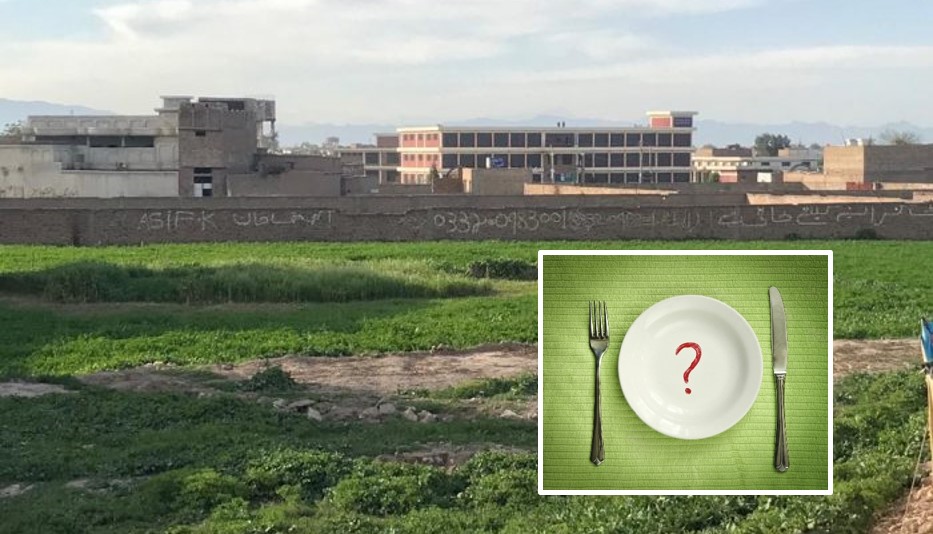One and half year ago the federal government brought about Construction Package 2020 to boost construction activities and facilitate developing five million houses, mainly for lower income strata, in Pakistan. However, the scheme reaped nothing for poor in terms of affordable homes or employment. In fact it has misfired badly as the mounting real estate ambition is now fast devouring Pakistan’s agricultural lands and leading the country to food insecurity.
No denying each year thousands of trees are chopped down by real estate builders in the name of land development, but in recent years the boom of housing societies pose serious threats to environment as well as food security of the country. As sizable amount of green lands have been turned into jungle of concrete in northern Punjab and southern Sindh, which are considered the Pakistan’s two main bread-baskets.
Food Insecurity on the Rise
The consequences of diminishing agricultural land are evident. Pakistan food imports bill is jumping year on year by 50%. As per the latest data released by the Pakistan Bureau of Statistics (PBS), the country’s food import bill clocked in at $1,473.45 million during July-August 2021. Keeping aside palm oil and tea (the usual import commodities), it is the import of sugar that jumped massively by 62%. Besides the import of wheat and pulses also increased significantly to $16.46 million and $154.93 million, an increase of 72.5% and 92%, respectively.
As a result of this huge food imports, trade deficit is widening as the overall import bill of the country has been on the rise continuously. On the other hand, the increased imports of edible items have led to food inflation, which has become a major challenge for the government nowadays.
Naya Pakistan Diminishes Agriculture Land
It is really pity that PTI’ led governments consider new shiny skyscrapers and sprawling gated-communities as yardsticks of development and progress, and turn their back on the long-term consequences of these gray spaces. The endless greed for real estate development is fast devouring sizable amount of fertile agricultural lands. Real estate developers offer farmers triple the market price, which is an irrefutable temptation for them and farmers are increasingly selling out their holdings to real estate developers.
Besides, the Government of Punjab promulgated “The Punjab Commission for Regularization of Irregular Housing Schemes Ordinance-2021”. The controversial ordinance allows consumption of the agriculture land for commercial purposes and housing societies on green spaces in Lahore and adjacent areas. According to the Kisan Board Pakistan, a non-governmental agricultural advisory and research organization, housing schemes have so far eaten up 20-30% of the fertile land in Punjab. That include;
- 70% of agricultural land has been converted into gated communities in Lahore alone.
- 30% fertile land lost to real estate developers in Faisalabad.
- 90,000 trees has been cut down in Multan for real estate development schemes
- The other cities of the province could also not have escaped this grim phenomenon.
Environmental Impacts
On the other hand it is also pity in the PTI government, the Construction Package 2020 entailed with grand Amnesty Scheme has nothing to do with poor. Arif Hasan rightly points out “Building of these housing societies has nothing to do with the country’s housing problem. They are not meant for poor or low-income people but for the rich, who find it the best way to launder their black money or buy plots for investment purposes.”
Diminishing of earth`s green cover leads to higher urban temperature, of which environmental implications can be widely seen in the shape of air pollution, ground water depletion and overall rise in temperature. Rising smog phenomenon in Lahore and heat island effect in Karachi are nothing but fallout of the dwindling green cover. Besides, temperature in many cities of Pakistan hit a new high during the summers in 2021.
By
Editorial, Infocus


